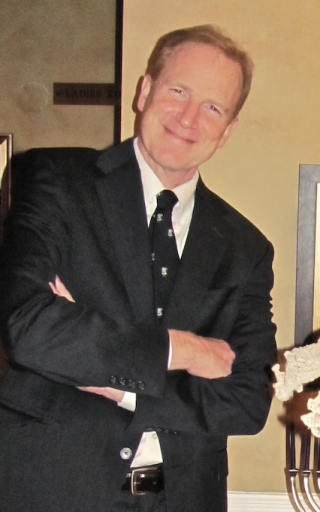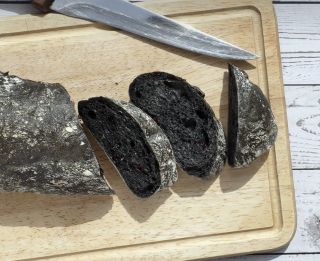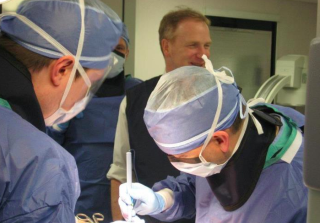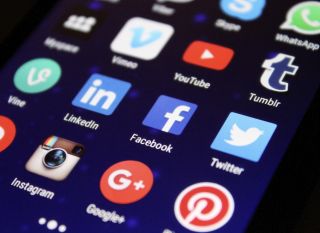Education
My Genius for Irreverence
Personal Perspective: Critical thinking is a must in the information era.
Updated June 23, 2024 Reviewed by Ray Parker
Key points
- A healthy irreverence for all information streams and sources is desirable.
- Distinguishing truth from misinformation is becoming increasingly difficult.
- We need to subject all incoming information to well-developed critical thinking.
- Scientific skepticism should power our critical thinking.

I’m a genius. Although an inadvertent one. All my life, I’ve been a teaser. You know, someone who takes any interaction, any conversation, any discourse, and subjects it to some sort of absurdist manipulation. Anyone and everyone—friends, foes, acquaintances, strangers, mentors, mentees, ancient ones, children, you name it—are at risk of suffering barrages of my twisted banter. The words just come out, leaving my lips prior to any thought or planning. I always believed the behavior was a compulsion, an escape of my Id, my Lord of Misrule, looking for some fun. But now I recognize that it was actually an act of inspiration, a service to all humankind, a clarion call to my fellow travelers for more critical thought in this most complex of eras.
Lava Bread?
I came to this realization whilst conversing with neuroscience majors in a study abroad program. While dining with them, I began spinning fantastical tales about the local geography, people, and cuisine to see how far down the farcical garden path I could take them. For example, I asserted that some black bread we were eating was infused with finely ground lava rock harvested from the inclines of Switzerland’s solitary volcano (which does not exist).

In so doing, I was teleported back to the many conversations I had with two of my nieces. Through the years, I fed them a steady stream of bogus information about people and the world, countering all the real and useful information my sister was imparting to them. They quickly developed a keen sense of what was genuine and what was a line, a skill that I believe served them well when they had to deal with all the predatory men of the world.
CTs and MRIs
Fast forward to my days of training neurosurgical residents. Oh, how, on rounds, I delighted in leading them down treacherous alleys of misdiagnosis, giving them the “answer” to a patient problem upfront, in the form of a CT scan or MRI, and watching the confirmation bias kick in. Then, I would joyfully rub their faces in their errors, errors that unchecked could have led to patient harm. The lesson being that in medicine, few things are exactly as they appear, nasty surprises await around every corner, you cannot practice strictly by algorithm, and when you assume something, you make an a—well, you know.

And now I have a granddaughter to torment. At 8, she already casts a wary eye upon my assertions. In fact, she is driven to counter them with data gleaned from multiple sources—already recognizing that a single authority, no matter how venerated or emphatic, is not sufficient to dispel a false claim.
Irreverence
As I reflect back on my mindset in these interactions, I recognize that a common thread running through them is an overpowering sense of irreverence; irreverence particularly for the most exalted people and institutions, for the “experts,” for doctrine, for the unequivocal and the “incontrovertible,” for “knowledge” in general. Disrespectful? I suppose. It was a troublesome habit during my days in the military, where respect for rank supersedes most things. But I would rather be disrespectful than be duped, or fall for unsubstantiated dogma. It is anathema to me to swallow—hook, line, and sinker—something, anything, that is asserted, proclaimed, or declared as gospel, no matter how convincing on first blush it may be.
Looking back, I see how prescient I was—had I known what I was doing. I mean, there have always been bullsh*tt*rs, confidence men, hucksters, grifters, shameless self-promoters, raging narcissists, professional liars, and the like, but the digital era seems to have intensified, magnified, and amplified it all. Information is beamed into our heads constantly, and it is increasingly unreliable.
In the biomedical world, probably over 50 percent of the published data is compromised. By shoddy techniques, P value mining, bias, bad science, or intentional cooking of the books. And negative data—that is, data countering the latest newsworthy studies—may never get published at all. The implications are scary. The uncritical physician who starts prescribing the next wonder drug predicated on what he/she has read in medical journals may end up hurting people.
Politicians, who have always had an uneasy relationship with the truth, now seem to have a license to blatantly lie about everything. Their lies are picked up by their media echo chambers and repeated so regularly that it only takes days or hours for them to be acknowledged by the faithful as irrefutable truths.
Thank goodness I have not had to venture out into the dating world for a good 45 years. How would anyone know whether to swipe left or right? False advertising in appearance, accomplishments, interests, and mores seems to be ubiquitous. How can anyone feel secure and safe out there when truth seems to be an anachronism?
And don’t get me started on the perils of dependence on artificial intelligence.
The Need for More Critical Thinking

The point is that we inhabit a universe where more irreverence, more incredulity, more doubt, and more scrutiny are called for, not less. But we seem to be giving everything less. We need more practice in the scientific method. Develop a hypothesis opposite to our current assumption(s) and see if it can hold water. If we can’t disprove the opposite, then we might just be clinging to an untruth, a falsehood, a fabrication, a fable. I’m not advocating relentless, uninformed cynicism or nihilism, just more scientific skepticism.
Anyway, I’d like to think that through my many decades of irreverence and teasing, I’ve been honing the critical thinking skills of my counterparts and charges. Preparing them to navigate the information era (or misinformation era?). That I’m a genius, really. A prophet of perusal. Rather than just an insufferable jerk.
References
Freedman, L, et al. The Economics of Reproducibility in Preclinical Research PLOS Biology. June 9, 2015. https://doi.org/10.1371/journal.pbio.1002165
Loannidis JP. Why most published research findings are false. PLoS Med.2005;2(8):e124.
Richards, J., et al. Teaching Clinical Reasoning and Critical Thinking: From Cognitive Theory to Practical Application. Chest. 2020 Oct;158(4):1617-1628. doi: 10.1016/j.chest.2020.05.525. Epub 2020 May 22.
Eckert, J., et al. Just kidding: the evolutionary roots of playful teasing. Biol Lett. 2020 Sep;16(9):20200370. doi: 10.1098/rsbl.2020.0370. Epub 2020 Sep 23.
Dzhafarov, E. Justification, Skepticism, Irreverence: or Why Science is Different From Faith and Thetoric. Trames. A Journal of the Humanities and Social Sciences. 2005, 9(59/54), 4, 377–392




